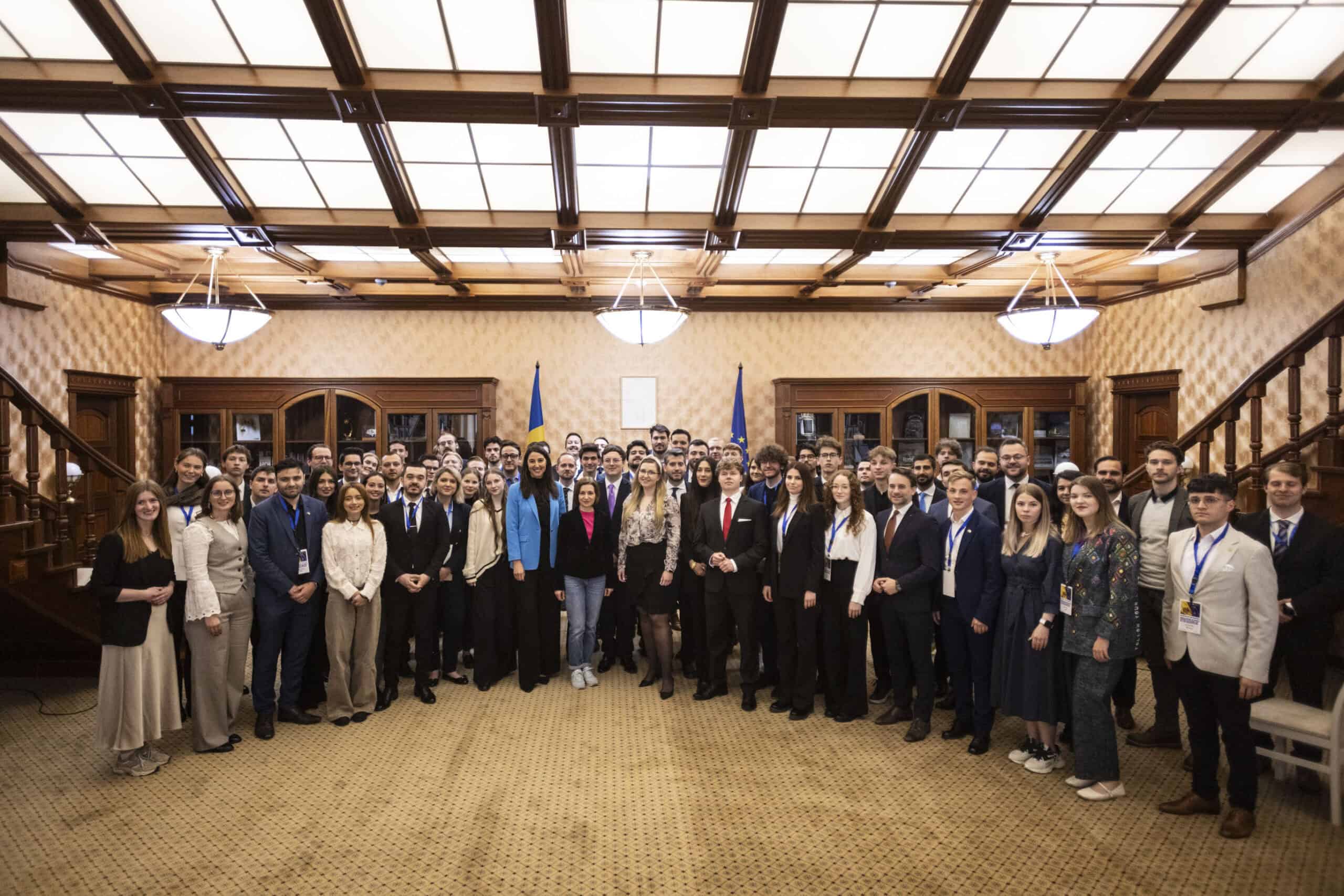From May 8th to 11th, the centre-right youth gathered in Chișinău, Moldova. A YEPP initiative organized in cooperation with the Konrad Adenauer Foundation (KAS) and the Wilfried Martens Centre for European Studies (WMCES). Delegates from across Europe and beyond took part in a series of engaging discussions, meetings, and policy-focused activities with Moldovan leaders.
A standout moment of the event was a special audience with the President of the Republic of Moldova, Maia Sandu. Delegates held an open and thoughtful exchange with the President, discussing Moldova’s current political and social landscape. The session offered a unique opportunity for young leaders to ask questions and gain direct insight into the country’s future direction.
In addition, delegates had the chance to meet Mihail Popșoi, Moldova’s Minister of Foreign Affairs.
Delegates also met Doina Gherman, Deputy Speaker of Parliament and Vice President of PAS, who shared her experiences and perspectives on democratic development and youth participation in public life.
Another key highlight was an in-depth session on the Transnistrian conflict led by Oleg Serebrian, Deputy Prime Minister for Reintegration and moderated by George Dimakos, Project Officer of Martens Centre. His briefing helped participants better understand one of Eastern Europe’s most pressing unresolved conflicts.
The program featured a lively panel on education and youth policy with Dan Perciun, Minister of Education; Eugeniu Sinchevici, Moldova’s youngest MP; and Marcela Nistor, Member of Parliament. Discussions centered on the state of youth engagement, education reform, and shared European values.
Adding an interactive twist to the agenda, participants took part in the second edition of the Westminster Debate, where they debated current issues in a format modeled after the UK Parliament—developing public speaking and critical thinking skills in a fun and competitive setting.
This gathering provided a valuable space for YEPP members and other participants to connect with Moldova’s political landscape, deepen their understanding of regional issues, and strengthen transnational cooperation.






